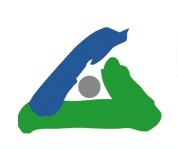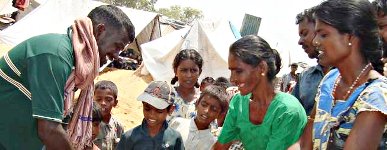Meet our partners:Chalida Tajaroensuk, of People’s Empowerment Foundation
During the last week of May, FI hosted a Thai delegation of nine NGOs, to carry out several advocacy actions around Thaïland’s review by the Committee on Economic, Social and Cultural Rights (CESCR). FI submitted an alternative report to this Committee, focusing on the land rights of indigenous peoples, on refugees, asylum seekers, migrant workers, on birth registration and on child labour. The delegation met with several permanent missions in Geneva, UN Staff, and international NGOs to share their concerns on the human rights situation in Thailand.
Among the visitors was Ms Chalida Tajaroensuk, Director for People’s Empowerment Foundation, a Bangkok-based foundation that addresses the needs of grassroots civil society networks in Thailand and seeks to create mechanisms for individuals, community organisations, grassroots coalitions and popular movements to work together to achieve social change. For example, PEF has produced a manual that presents some important UN mechanisms, such as the Universal Periodic Review and the Committee on Economic and Social Rights through cartoons, for people in communities to understand and engage with.
This year, in preparation for the CESCR, the People’s Empowerment Foundation had gathered information from different grassroots groups - ranging from student groups, farmers, gay and lesbian groups, and Rohingya asylum seekers – in order to submit an alternative report in April. Chalida is now looking forward to working with civil society and government representatives back at home to ensure the implementation of the CESCR’s Concluding Observations, which might even include inviting people she met in Geneva to Thailand. She is hoping to set up mechanisms for civil society and grassroots groups to approach national officers, and share implementation strategies.
Most recently, Chalida has been working with a vulnerable group of people whose plight is attracting increasing international attention, as overcrowded boats carrying them are being turned away: the Rohingya. Some of them showed up at the PEF office in Bangkok one day seeking help, and Chalida has sought to advocate for their rights in a variety of ways. Her foundation’s report to the CESCR included a denunciation of their situation.
The Rohingya are an indigenous group living in Northern Myanmar, who have never been granted citizen status. In fact, Burma considers the Rohingya to be illegal immigrants from Bangladesh, denying them citizenship, and refuses to take responsibility for them. The systemic violence and persecution directed at them came to a head in 2012 when their homes were burned and attacked, displacing hundreds of thousands. Today, thousands remain in IDP camps, along the Thai and Malaysian borders where they have no protection and where many die from starvation and disease, and more are fleeing, seeking work and asylum in neighbouring countries.
For Chalida, and for Franciscans International, the main issue is a human rights issue, and she is calling for Myanmar to amend its citizenship law, in order for the Rohingya to be recognised. She insists that the Rohingya don’t understand the term “asylum seeker” and want to be recognised as “migrant workers” in the countries they are fleeing to – this can only happy if they are recognised citizens and have the basic rights associated to such recognition. Chalida admits this is a complex issue, one that has to be addressed step by step, and is ready for work on the long haul, both in Thailand and in the international arena.




 Franciscans International
Franciscans International